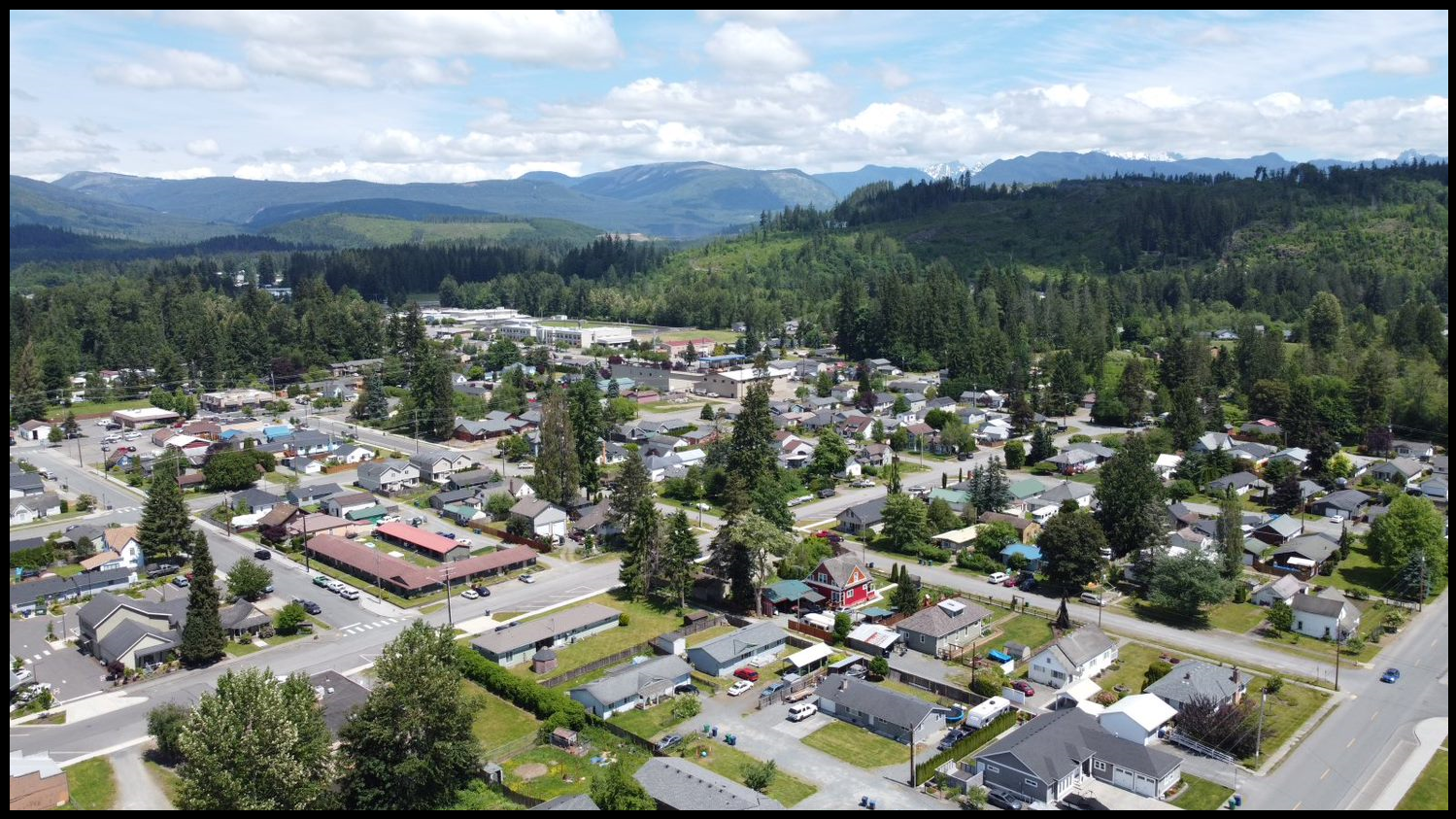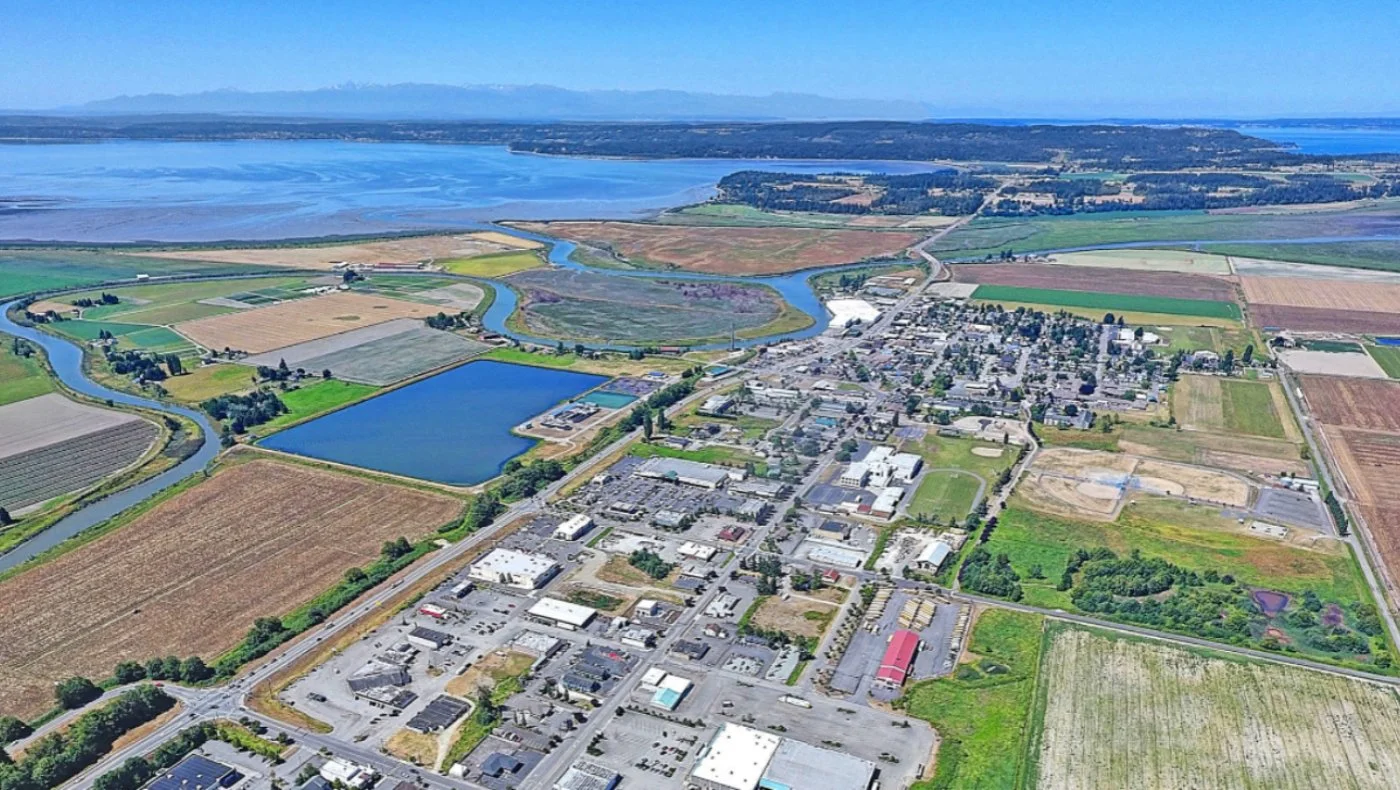
LEARN MORE ABOUT THE LOCAL MARKET.
Hidden Gems in Snohomish County Real Estate: Where Smart Buyers Are Looking Now
Not all of Snohomish County’s best neighborhoods get the attention they deserve. Take a closer look at the hidden gems buyers and homeowners are starting to notice.
When most people think about buying or selling a home in Snohomish County, the same few cities tend to dominate the conversation. Everett. Edmonds. Lynnwood. While these areas are popular for good reason, they aren’t the only places worth your attention. In fact, some of the best opportunities in today’s market are found in the hidden gems of Snohomish County real estate, neighborhoods that offer more space, more character, and more long-term value than you might expect.
If you’re a buyer hoping to stretch your budget, a homeowner curious about your equity, or a seller wondering where demand is quietly growing, these overlooked areas deserve a closer look. As a local expert who works throughout the county, The Serviss Group sees firsthand how buyers are rediscovering these communities, and why they’re becoming smart real estate moves.
Let’s explore a few Snohomish County neighborhoods that may not be on your radar yet, but probably should be.
Why Hidden Gem Neighborhoods Matter in Today’s Market
In a competitive housing market, expanding your search beyond the most talked-about cities can open the door to better opportunities. Many of the best places to live in Snohomish County aren’t necessarily the loudest or trendiest, they’re the ones quietly offering strong lifestyle value and future appreciation.
Hidden gem neighborhoods often stand out because they offer:
More home for your money, including larger lots or newer construction
A slower pace of life with less congestion and noise
Access to nature, from rivers and trails to mountain views
Growing buyer demand as more people look beyond urban cores
For sellers, this growing interest can translate into increased visibility and strong offers. For buyers, it often means finding a home that fits both your lifestyle and long-term goals.
Sultan – Scenic Living with Small-Town Appeal
Main Street in downtown Sultan.
Tucked along Highway 2 at the base of the Cascades, Sultan offers a blend of natural beauty and close-knit community that’s becoming increasingly attractive to buyers. Surrounded by rivers, forests, and mountain views, this town is ideal if you want room to breathe without giving up accessibility.
Homes in Sultan tend to feature larger lots and lower price points compared to many parts of Snohomish County, making it appealing to first-time buyers, remote workers, and anyone craving a quieter lifestyle. Outdoor recreation is part of everyday life here, from floating the Skykomish River to weekend hikes near Stevens Pass.
What makes Sultan a standout is its balance: peaceful and scenic, yet still connected to Monroe, Everett, and major commuter routes.
Gold Bar – An Outdoor Lover’s Hidden Treasure
Just east of Sultan, Gold Bar is one of the most underrated communities in Snohomish County. Known for its proximity to Wallace Falls State Park, this area is a magnet for outdoor enthusiasts, and increasingly, for buyers seeking something different.
Gold Bar’s housing market remains relatively under-the-radar, which creates opportunities for buyers looking for affordable homes in Snohomish County with long-term upside. Properties here often appeal to those interested in second homes, vacation rentals, or simply living closer to nature.
As more buyers prioritize lifestyle and flexibility, Gold Bar’s appeal continues to grow, making it a smart area to watch.
Stanwood – Coastal Charm Without the Crowds
Located near the Stillaguamish River delta and Camano Island, Stanwood offers a unique mix of coastal influence and rural tranquility. Its historic downtown, strong community identity, and proximity to water make it especially attractive to families and retirees alike.
Stanwood is often overlooked by buyers focused farther south, yet it provides excellent value for homes with land or views, along with convenient access to I-5. Compared to other waterfront-adjacent areas in the region, Stanwood remains refreshingly approachable from a pricing standpoint.
If you want charm, space, and community without the congestion of larger cities, Stanwood deserves a second look.
Granite Falls – Affordable Living at the Edge of the Cascades
Granite Falls is known as the gateway to the Mountain Loop Highway, and it lives up to that reputation. This community attracts buyers who value affordability and access to outdoor recreation, without feeling disconnected from the rest of the county.
One of Granite Falls’ biggest draws is its entry-level housing opportunities, including new construction that’s increasingly rare elsewhere. Buyers who may feel priced out of other areas often find Granite Falls to be a realistic and rewarding option.
For homeowners, the town’s steady demand and limited inventory can also make it a strong selling environment when positioned correctly.
Arlington – Quietly Growing with Big Potential
Arlington combines historic charm with real growth momentum. Its walkable downtown, Centennial Trail access, and proximity to major highways make it appealing to commuters and families alike.
While Arlington doesn’t always get the attention of nearby cities, its diverse housing options—from historic homes to newer developments and acreage properties—make it one of the most versatile markets in Snohomish County.
As infrastructure and employment opportunities continue to expand, Arlington remains a smart option for buyers looking ahead and sellers positioning themselves in a rising market.
FAQs About Hidden Gem Neighborhoods in Snohomish County
Are these neighborhoods good for long-term appreciation?
Many are. As buyer preferences shift toward space, flexibility, and lifestyle, demand in these areas continues to grow.
Will I still have access to jobs and amenities?
Yes. Most hidden gem areas are within reasonable commuting distance of Everett, Monroe, or I-5 corridors.
Are these areas good for families?
Absolutely. Many offer strong community ties, local schools, and outdoor activities that appeal to families.
How do I know which neighborhood fits my goals?
Working with a local expert who understands micro-markets is key.
Ready to Discover Your Own Hidden Gem?
Whether you’re buying, selling, or simply exploring your options, knowing where opportunity exists is everything. The Serviss Group specializes in helping clients uncover homes for sale in Snohomish County that align with both lifestyle and long-term value.
If you’re considering selling, a strategic approach matters, especially in neighborhoods buyers may not fully understand yet. If you’re buying, the right guidance can help you avoid competition and uncover better value.
Explore your options with a personalized Home Valuation or learn how our proven Listing Strategy helps sellers stand out. Contact us today!
Looking for deeper insights? Our Neighborhood Guide breaks down Snohomish County one community at a time.
Your next move might not be where everyone else is looking, and that’s exactly the point.
What Really Happened in the Snohomish County Housing Market in 2025, and How It Stacks Up to the Past
A year in review of how the Snohomish County housing market changed throughout 2025, how it compares to past years, and what it means for buyers and sellers.
If you own a home in Snohomish County, or you’re thinking about buying or selling, you probably felt how 2025 was a year of adjustment in the housing market. The year didn’t bring a dramatic crash or a sudden boom. Instead, it marked a clear transition from the fast-paced, emotional market of recent years to something more measured, strategic, and intentional.
This year-in-review breaks down how the housing market started in early 2025, how it shifted as the year progressed, and how those changes compare to the past five years, all through a Snohomish County lens. More importantly, you’ll see what these trends mean for your home value and your next move.
How the Housing Market Started in Early 2025
The Snohomish County housing market entered 2025 with momentum carried over from 2024. Home prices were still elevated, inventory remained tight, and sellers continued to hold the upper hand.
At the beginning of the year, buyer demand stayed strong, driven by steady employment, population growth, and long-term confidence in the Puget Sound region. However, affordability pressures were already shaping behavior. Mortgage rates hovered in the high-6% to low-7% range, which forced buyers to be more budget-conscious and selective.
What defined early 2025?
Home prices were still rising, though at a slower pace than prior years
Inventory increased modestly, but not enough to balance demand
Homes sold quickly when priced correctly and well-presented
Buyers hesitated more, especially at higher price points
While this was still a seller-favored market, it lacked the urgency of the 2021–2022 frenzy. Buyers no longer felt compelled to waive every contingency or stretch far beyond their comfort zone. That shift set the tone for the rest of the year.
How the Market Shifted as 2025 Progressed
As spring and summer arrived, the housing market began to recalibrate.
More homeowners decided to list, especially those who had delayed selling during rate volatility. New construction also contributed additional supply in cities like Lake Stevens, Marysville, and parts of Bothell. As a result, active inventory rose noticeably by mid-to-late 2025.
This increase didn’t flip the market into buyer territory, but it did soften conditions.
What changed in the second half of 2025?
Homes stayed on the market longer, averaging closer to 30–40 days
Price reductions became more common, especially for over-priced listings
Negotiations returned, including inspection repairs and closing credits
Buyers gained leverage, particularly in mid-range and higher price points
By fall, home price growth flattened, and in some areas prices dipped slightly year-over-year. This wasn’t a sign of weakness, it was a natural correction after years of aggressive appreciation.
For homeowners, this meant equity largely held steady. For buyers, it meant the ability to make thoughtful, well-structured offers instead of emotional ones.
How 2025 Compares to the Past Five Years
To fully understand 2025, it helps to view it in context.
2020–2021: The Unprecedented Boom
Ultra-low interest rates and pandemic-driven relocation created explosive demand. Prices surged, inventory vanished, and competition reached historic levels. Sellers dictated every term.
2022: The Reality Check
Rising interest rates slowed demand rapidly. Prices stabilized and even dipped in some Snohomish County neighborhoods as affordability tightened.
2023–2024: Stabilization
The market found its footing. Prices rose at a more sustainable pace, inventory remained limited, and buyer demand stayed consistent despite higher rates.
2025: The Rebalancing Year
Unlike earlier years, 2025 wasn’t defined by extremes. Instead, it marked a transition to a more normalized housing market:
Slower, but healthier, price movement
Increased inventory without oversupply
More balanced buyer and seller expectations
Compared to the emotional swings of recent years, 2025 felt calmer, more predictable, and more rational.
City-by-City Insights Across Snohomish County
Real estate is always local, and 2025 proved that once again.
Bothell remained competitive due to proximity to major employment hubs
Lake Stevens and Marysville benefited from relative affordability and new construction
Everett saw steady demand but more price sensitivity
Lynnwood experienced modest cooling as inventory increased
These variations highlight why county-wide headlines never tell the full story. Neighborhood-level trends matter more than ever.
If you’re evaluating your position, a localized analysis, like a Neighborhood Guide or personalized valuation, is far more useful than national averages.
What 2025 Means for Homeowners Thinking About Selling
If you’re considering selling your home, 2025 delivered an important lesson: pricing and preparation matter again.
You can no longer rely on buyer urgency alone. Homes that sold fastest in 2025 shared common traits:
Accurate pricing based on current market data
Strong presentation, staging, and condition
Strategic marketing, not “test-the-market” pricing
Overpriced homes often lingered, requiring reductions that ultimately weakened negotiating power.
Bottom line: You can still sell successfully, but strategy beats shortcuts.
If you’re exploring a move, start with a Home Valuation to understand where your property fits in today’s market.
What 2025 Means for Buyers
For buyers, 2025 opened a door that had been closed for years.
You likely noticed:
Less competition on many listings
The return of inspection and financing contingencies
More room to negotiate repairs or credits
That said, well-priced homes in desirable areas still moved quickly. Preparation remained critical.
Smart buyer strategies that worked in 2025:
Getting fully pre-approved early
Staying flexible on timing and location
Acting decisively on the right home
If interest rates ease in the coming year, competition could intensify again. Buyers who move strategically, not reactively, are best positioned.
A Local Case Study: Navigating the 2025 Market Successfully
A Snohomish County homeowner listed their Everett property in summer 2025. Rather than pricing aggressively based on past peaks, they worked with a data-driven listing strategy.
The home sold within three weeks at market value, with minor negotiated repairs—but no major concessions.
The same sellers then purchased a larger home with inspection protections and seller-paid repairs, something that would have been nearly impossible just a few years earlier.
The lesson: 2025 favored informed decisions on both sides of the transaction.
Frequently Asked Questions
Was 2025 a buyer’s or seller’s market in Snohomish County?
It remained seller-favored, but noticeably more balanced than previous years.
Did home prices drop in 2025?
Prices largely flattened, with small declines in some areas and stability in others.
Are buyers negotiating again?
Yes. Inspections, credits, and price adjustments became common again.
Is now a good time to sell?
If priced correctly and prepared well, yes. Demand remains strong.
Where can I track reliable housing data?
The National Association of Realtors provides trusted housing research and market insights: https://www.nar.realtor
What Comes Next, and What You Should Do Now
2025 marked a turning point for the Snohomish County housing market. It shifted expectations, restored balance, and rewarded informed decision-making.
Whether you’re planning to sell, buy, or simply understand your home’s value, clarity is your biggest advantage.
Start with a personalized Home Valuation
Explore local trends with a Neighborhood Guide
Build a plan with a proven Listing Strategy
If you want guidance tailored to your goals, The Serviss Group is here to help you move forward with confidence, backed by local expertise and real market insight. Contact us today!
How to Build Wealth Through Homeownership: Equity, Tax Benefits, and Legacy Planning
Learn how to build wealth through homeownership in Snohomish County. Discover equity growth, tax benefits, and legacy planning strategies to secure your financial future.
Owning a home in Snohomish County isn’t just about having a place to live, it’s a powerful tool for wealth building. Through equity growth, valuable tax benefits, and thoughtful legacy planning, your home can secure your financial future and create opportunities for the next generation.
Building Equity: Your Home’s Wealth Generator
Home equity is the difference between your home’s market value and your mortgage balance. It grows over time as you pay down your loan and as property values rise. In Snohomish County, home prices have seen steady property appreciation, making ownership an even greater financial advantage.
Home equity is the difference between your home’s market value and your mortgage balance. It grows over time as you pay down your loan and as property values rise. In Snohomish County, home prices have seen steady property appreciation, making ownership an even greater financial advantage.
Appreciation: In Washington state, home prices have increased over 140% in the last decade. In Snohomish County specifically, the median price jumped from about $240,000 in 2012 to nearly $686,000 in 2022. That’s hundreds of thousands of dollars in potential equity growth for long-time homeowners.
Mortgage Paydown (Forced Savings): Every monthly payment builds ownership. Unlike rent, these dollars turn into a tangible asset you control. According to the National Association of REALTORS®, the average homeowner’s net worth is 40 times higher than that of renters.
Leverage: Even a small down payment lets you benefit from the appreciation of the entire property value. For example, a $500,000 Snohomish County home appreciating 5% in a year adds $25,000 in equity, regardless of whether you put down 5% or 20%.
Tips to Boost Equity:
Make extra payments toward principal.
Invest in smart home improvements.
Stay in your home long enough to benefit from appreciation.
Refinance strategically when rates drop.
Want to know where you stand? Start with a free Home Valuation to see how much equity you’ve built.
Tax Benefits of Homeownership
Owning a home also comes with tax advantages that renters don’t enjoy.
Mortgage Interest Deduction: Deduct interest paid on loans up to $750,000.
Property Tax Deduction: Deduct up to $10,000 in state and local property taxes.
Capital Gains Exclusion: Keep up to $250,000 (or $500,000 for married couples) in profit tax-free when selling your primary residence.
Other Perks: Some energy-efficient upgrades qualify for federal tax credits, and home office deductions may apply if you run a business from home.
These homeownership tax benefits free up income that you can reinvest, whether toward retirement, home upgrades, or growing your savings. For details, see NAR’s overview of homeownership financial benefits.
Legacy Planning: Building Generational Wealth
Your Snohomish County home isn’t just a financial asset today, it’s part of your family’s future.
Passing Your Home to Heirs: Real estate can provide a financial head start for children and grandchildren, often with a step-up in basis for favorable tax treatment.
Using Equity During Your Lifetime: Tap into equity with a HELOC to fund education, launch a business, or help family members buy their own homes.
Downsizing for Retirement: Selling a larger property and buying smaller can release equity for retirement savings or family support.
Three generations of a family in front of a home, representing legacy and generational wealth.
With the right listing strategy, you can maximize your home’s value when it’s time to sell, ensuring more wealth is preserved for your future plans.
FAQs
Q: How long does it take to build equity?
Most homeowners begin to see meaningful equity within 5–7 years, thanks to a mix of mortgage paydown and property appreciation.
Q: What if the market declines?
Home values can fluctuate, but equity still grows as you pay down your loan. Long-term ownership helps weather market cycles.
Q: Is one home enough to build wealth?
Yes. Even a single primary residence can significantly increase your net worth. Additional properties may accelerate wealth, but aren’t required.
Q: How do I access my equity?
Options include home equity loans, HELOCs, or cash-out refinancing. Each has pros and cons, speak with a professional before deciding.
Ready to Build Wealth Through Homeownership?
Whether you’re buying your first home, considering selling, or planning for the future, your home is a cornerstone of financial security.
Contact The Serviss Group today for expert guidance in Snohomish County. We’ll help you track your home value, design a winning listing strategy, and explore communities through our Neighborhood Guide so you can make smart, wealth-building choices.
Your home isn’t just a place to live, it’s your path to lasting financial success.
Snohomish County: Your Guide to Equestrian and Farmland Opportunities
Explore the vibrant equestrian and farmland opportunities awaiting in Snohomish County, a haven for livestock enthusiasts and prospective homeowners seeking a rural paradise. This comprehensive guide delves into city-specific regulations, acreage requirements, and the essential steps to finding your dream home with the expert guidance of The Serviss Group at RE/MAX.
Snohomish County: Your Guide to Equestrian and Farmland Opportunities
Nicole Serviss, RE/MAX Elite
Are you dreaming of a serene equestrian paradise nestled in the picturesque landscapes of Snohomish County? Well, your dream is about to come true as we delve deep into the heart of rural Snohomish County, a haven for livestock and farm animals. Whether you are an aspiring farmer or a seasoned equestrian enthusiast, understanding the rules and guidelines for keeping livestock is essential. Let's explore the possibilities that await in the rich farmlands of this region, with a special focus on the number of animals you can keep per acre.
Understanding the Acreage Requirements
Before you set out to purchase your dream farmland, it is vital to understand the acreage requirements set by the Snohomish County government. Generally, the number of animals you can keep depends on various factors including the type of animal and the total acreage of your land.
In Snohomish County, the general guideline is that larger animals such as horses require more space compared to smaller livestock like sheep or goats. For instance, you might need an acre of land to keep one or two horses, ensuring they have ample space to graze and roam freely.
Equestrian Dreams Come True
Snohomish County is renowned for its equestrian facilities and communities. If you are an equestrian enthusiast, you will find a plethora of opportunities to nurture your passion. From equestrian trails to training facilities, the county offers everything you need to keep your horses healthy and happy.
Livestock and Smaller Farm Animals
Apart from horses, Snohomish County offers a nurturing environment for a variety of smaller farm animals. Whether you are looking to keep goats, sheep, or poultry, understanding the acreage requirements is crucial. Generally, smaller animals require less space, allowing you to keep a higher number of livestock per acre.
For detailed guidelines on the number of animals you can keep per acre, it is advisable to consult the Snohomish County government website for the most current regulations and recommendations.
City-Specific Regulations in Snohomish County
As you venture into the different cities of Snohomish County, you'll find that each city has its unique set of regulations governing the keeping of livestock and horses.
Arlington - City of Arlington
Bothell (partly in King County) - City of Bothell
Brier - City of Brier
Darrington - Town of Darrington
Edmonds - City of Edmonds
Everett (County Seat) - City of Everett
Gold Bar - City of Gold Bar
Granite Falls - City of Granite Falls
Lake Stevens - City of Lake Stevens
Lynnwood - City of Lynnwood
Marysville - City of Marysville
Mill Creek - City of Mill Creek
Monroe - City of Monroe
Mountlake Terrace - City of Mountlake Terrace
Mukilteo - City of Mukilteo
Snohomish - City of Snohomish
Stanwood - City of Stanwood
Sultan - City of Sultan
Woodway - Town of Woodway
Finding Your Dream Farmland
As you navigate through the diverse landscapes of Snohomish County, remember that finding the perfect farmland is a journey tailored to your unique needs and preferences. Whether you are drawn to the equestrian communities or the vibrant livestock farms, Snohomish County promises a rich and fulfilling experience.
Understanding County Land Requirements for Equestrian Land in Snohomish County
When it comes to establishing an equestrian facility or keeping horses on your property in Snohomish County, it is essential to be aware of the specific land requirements set forth by the county. These requirements are designed to ensure the welfare of the animals and to maintain the environmental integrity of the land.
Acreage Requirements
The acreage requirements can vary based on a variety of factors including the specific location within the county, the type of equestrian activities you plan to undertake, and the number of horses you intend to keep. Generally speaking, larger parcels of land are preferred for equestrian activities to ensure ample space for facilities such as stables, riding arenas, and pastures.
Zoning Regulations
Zoning regulations play a crucial role in determining the allowable uses of a piece of land. In Snohomish County, lands zoned for agricultural or rural uses are typically more conducive to equestrian activities. It is advisable to consult the Snohomish County Planning and Development Services for detailed information on zoning regulations and to ensure compliance with all necessary requirements.
Environmental Considerations
Environmental stewardship is a priority in Snohomish County. Landowners are encouraged to implement best management practices to protect critical areas, water resources, and wildlife habitats. This includes managing manure properly to prevent water pollution and designing facilities to minimize impervious surfaces.
Building and Permit Requirements
Before establishing an equestrian facility, landowners must obtain the necessary permits from the county. This may include building permits for the construction of stables and other structures, as well as grading permits for land alterations. It is essential to work closely with the county's planning and development services to ensure a smooth permitting process.
Conclusion
Understanding the county land requirements for equestrian land is a vital step in realizing your dream of owning an equestrian property in Snohomish County. By adhering to the guidelines and working collaboratively with county officials, you can create a safe and sustainable environment for both humans and horses.
Whether you have questions about acreage requirements, equestrian facilities, or finding a home that meets all your needs, The Serviss Group is here to assist you. Leveraging their extensive experience and knowledge of Snohomish County, they can help you navigate the diverse offerings of each city, ensuring you make an informed decision that you will be happy with for years to come.
Don't wait any longer to make your dream a reality. Reach out to The Serviss Group with RE/MAX today and take the first step towards finding your dream home in the heart of Snohomish County.
Have the dream of owning a horse property?
I’ve put together a list of every home in the Snohomish area with a barn. Submit the quick and easy form for your copy of the complete list and to register for an updated list to be sent weekly.























Professional staging in Snohomish helps your home sell faster and for more. Learn why Nicole Serviss includes it in her listings, and how it boosts results.